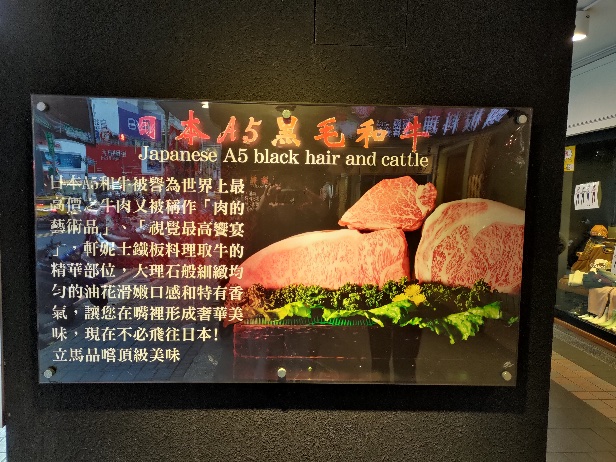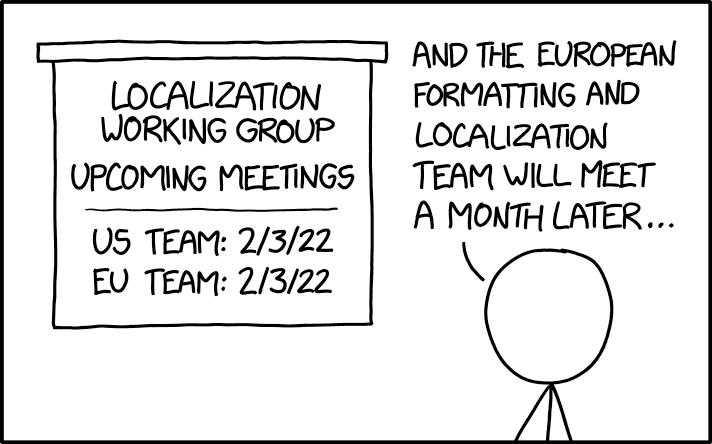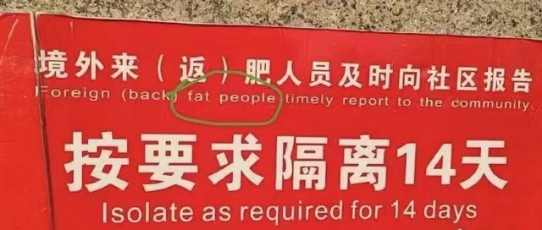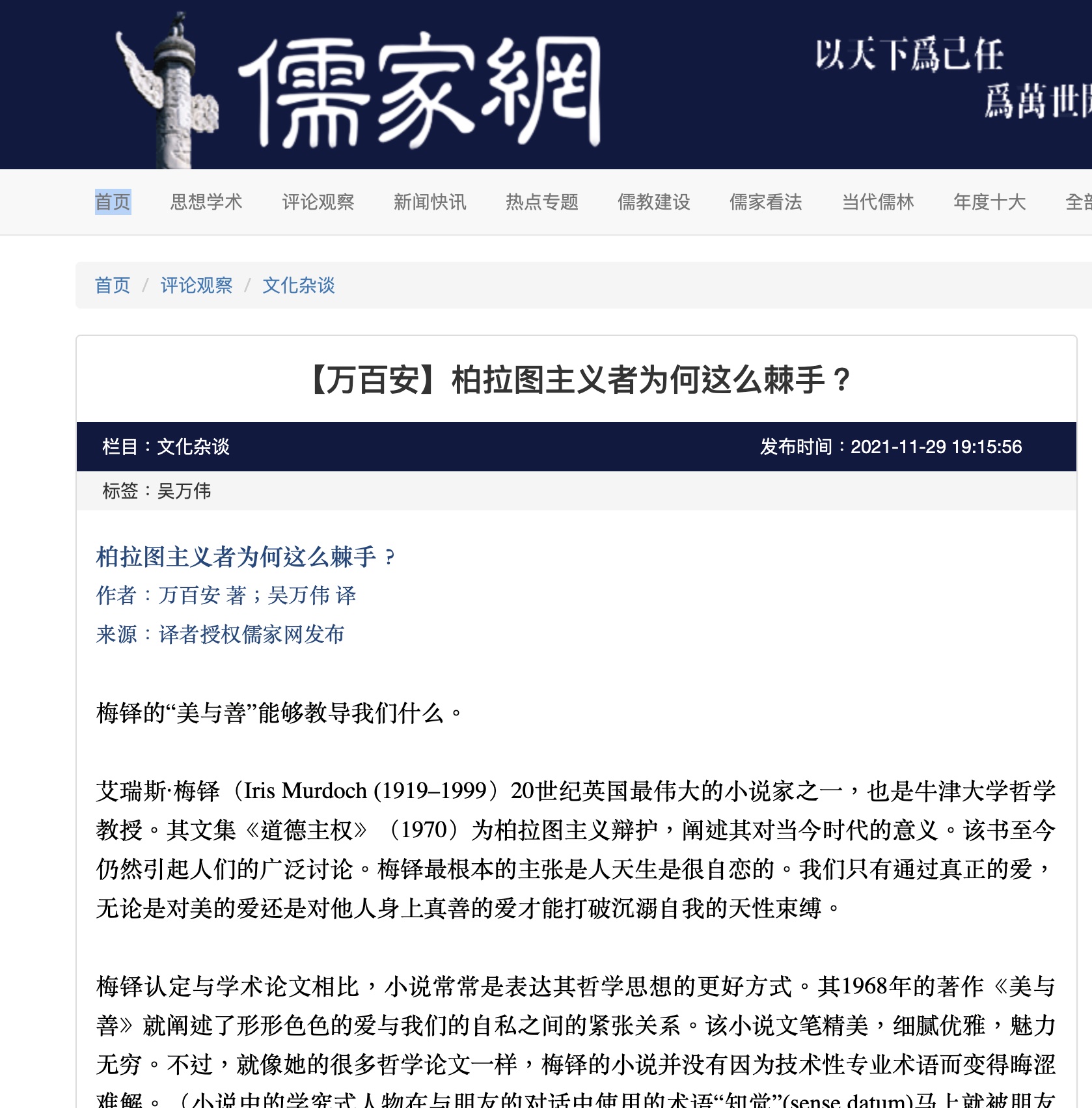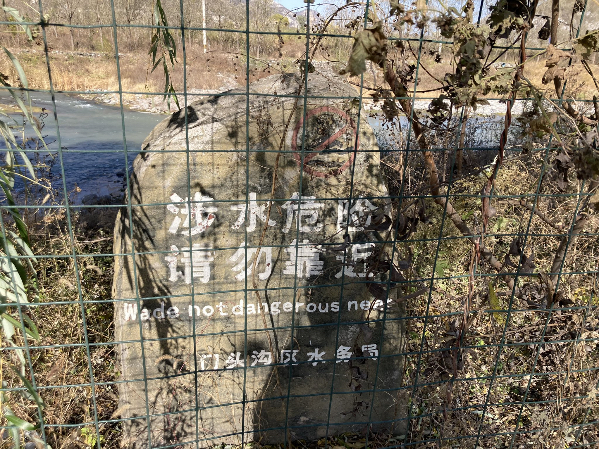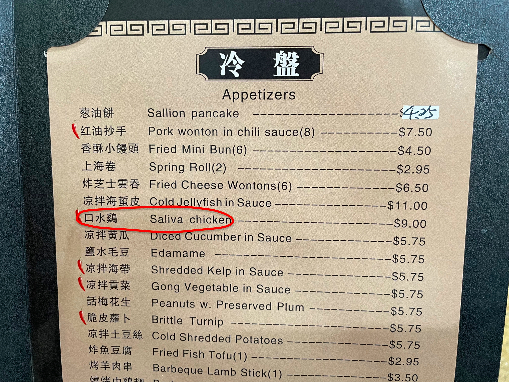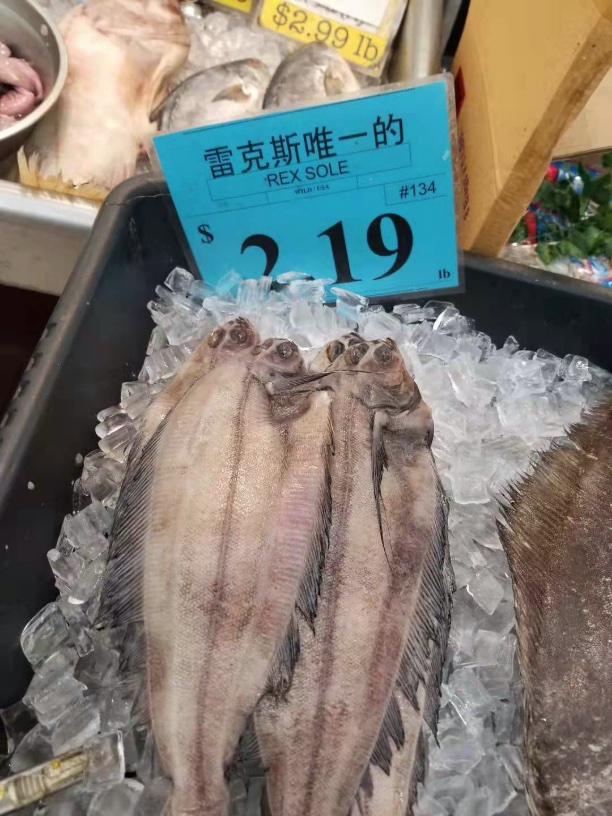Archive for Lost in translation
Englishy Chinese
In a moment of whimsy, I concluded a note to a friend thus:
wǎng qiánmiàn kànzhe 往前面看著 ("looking forward")
Whereas, the usual way to express that idea in idiomatic Chinese would be:
qídài 期待 ("expect; look forward to; await; wait in hope")
I referred to my intentionally deformed Chinese as Yīngshì Zhōngwén 英式中文 ("English style Chinese") and asked some friends what they would call that kind of writing (I was searching for a parallel to "Chinglish").
Read the rest of this entry »
Calendrical endianness
Today's xkcd:
The mouseover title: "Neither group uses iso 8601 because the big-endian enthusiasts were all at the meeting 20 years ago."
Read the rest of this entry »
"Carefully Fall Into The Cliff"
It's been a while since we have posted on this sub-genre of Chinglish:
My parents are touring China and spotted this very thoughtful sign…
byu/yumzau infunny
(reddit)
Read the rest of this entry »
(T)horny Platonists
From Bryan Van Norden:
There is a funny story about a recent publication of mine. The Chinese translation of my essay, "Why Are Platonists So Horny? What Murdoch’s 'The Nice and the Good' Can Teach Us" just came out. However, my hard-working translator mistakenly rendered "horny" in my original title (sèmí 色迷) as "thorny" (jíshǒu 棘手)! I told the translator, and he said that he will fix the mistake, so in case it is changed soon online, a screenshot of the original is copied below.
Read the rest of this entry »
Saliva chicken
We've alluded to this Sichuanese dish in posts and comments several times before on Language, but this is the first time I have captured it in the wild (at Nan Zhou Hand Drawn Noodle House in Philadelphia's Chinatown):
Read the rest of this entry »
Chinesey Japanese in a Hong Kong restaurant
From Zihan Guo:
Yesterday a friend of mine posted this photograph he took in a restaurant called 興記菜館 in Hong Kong. As a Chinese speaker and Japanese learner I find this hilarious.
Read the rest of this entry »
Hemorrhoids outbreak
Article by Stephanie Chiang in Taiwan News (9/2/21):
"Chinese censorship: Media creator substitutes ‘hemorrhoids outbreak’ for ‘plague’
Mobile game developers having to make concessions to appease Chinese censors"
Censorship in the PRC is going from the ridiculous to the pathetic. We have just been studying the government's attacks on "girlie men" and the authorities are also assailing "entertainment that is too entertaining". Here's the latest chapter in the CCP handbook dedicated to eradicating everything that is immoral and improper.
Players of the Chinese role-playing mobile game "Entwined Love Across Time" posted screenshots ridiculing in-game dialogue that showed characters discussing the aftermath of a “hemorrhoids outbreak,” UDN reported on Sunday (Aug. 29).
After the screenshots were posted to Weibo (China’s Twitter equivalent), a user claiming to be the creator of the game replied that because censors forbade any mention of the word “plague,” he had replaced the word with “hemorrhoids.” This resulted in a bizarre in-game conversation in the story-based game, in which a character recounts living through “hemorrhoids,” which taught him that “hemorrhoids are not to be feared, as human nature is much more fearsome than hemorrhoids.”
Read the rest of this entry »

